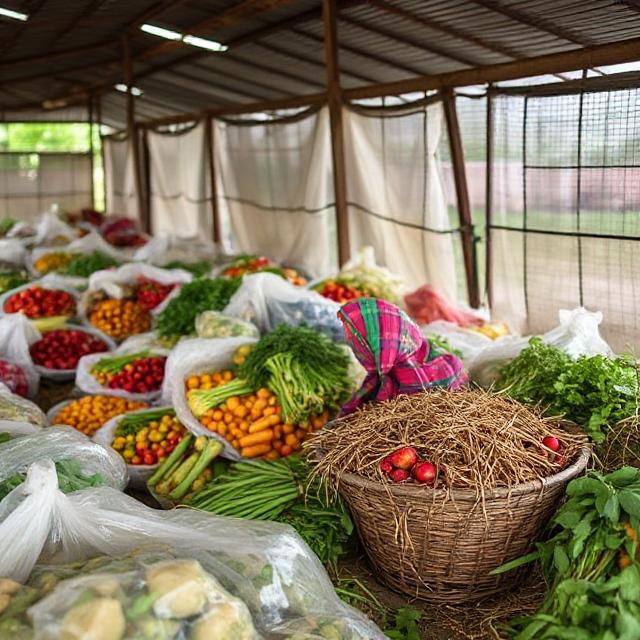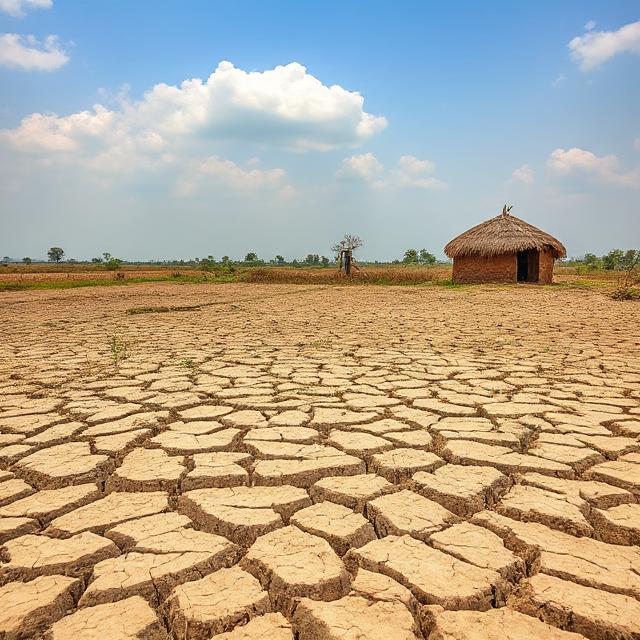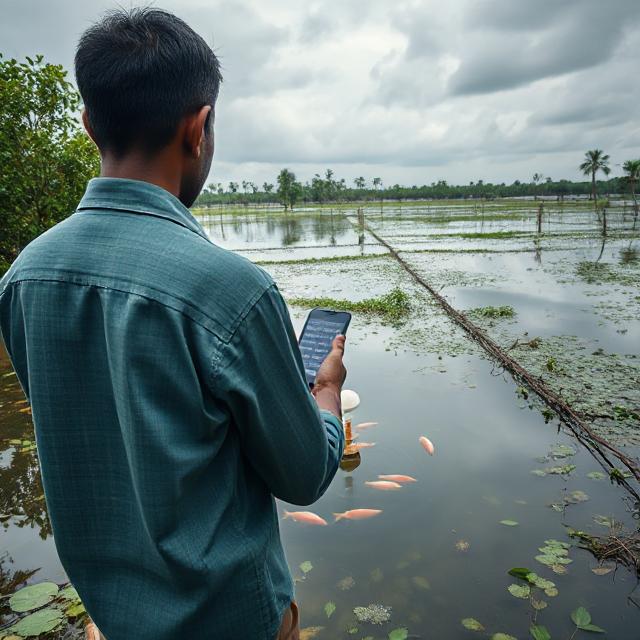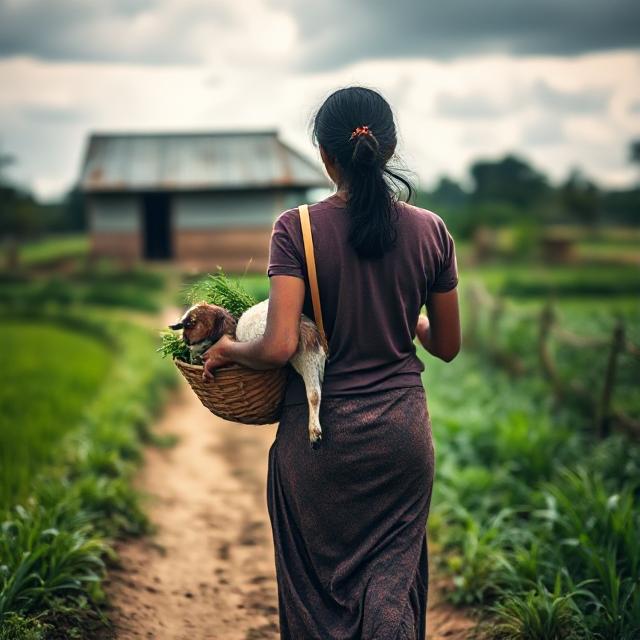Empowering Women in Bangladesh: Driving Food Security
The soft morning light fills a simple home in Kurigram, Bangladesh. A mother, her face marked by the quiet strength of many sunrises, carefully serves a meal to her children. This small act carries the weight of generations and shows her endless fight against hunger and malnutrition.
In rural Bangladesh, this scene reflects a bigger truth: women are not just part of food security. They are its foundation, its builders, and often its last defense.
But this story is complicated. While women play a central role in our food systems, they also suffer most when these systems fail. This article explores that challenge, showing how empowering rural women in Bangladesh is not only a matter of fairness but a powerful way to improve nutrition, increase food security, and create sustainable livelihoods for future generations.
It’s a story told through data, personal victories, and a strong call to action, aligned with the Sustainable Development Goals (SDGs), especially SDG 1 (No Poverty), SDG 2 (Zero Hunger), SDG 3 (Good Health and Well-being), SDG 5 (Gender Equality), and SDG 13 (Climate Action).
The Gender-Nutrition Gap in Rural Bangladesh
To truly understand the transformative power of women’s empowerment, we must first confront the stark realities of the gender-nutrition gap in rural Bangladesh. This isn’t just about food scarcity; it’s about a hidden hunger that disproportionately impacts women and girls, weakening the very foundations of our society.
Malnutrition and Its Feminine Face
The statistics are sobering. According to the Bangladesh Demographic and Health Survey (DHS), a staggering 36% of women of reproductive age in Bangladesh are anemic. This isn’t just a number; it represents millions of women suffering from chronic fatigue, reduced productivity, and increased vulnerability to illness, particularly during pregnancy and childbirth.
This hidden hunger extends beyond iron deficiency, encompassing micronutrient deficiencies that often go unseen but have devastating long-term consequences. Young girls, subjected to early marriage and frequent pregnancies, find themselves trapped in a vicious cycle where their own nutritional needs are neglected, directly impacting the health of future generations.
When the primary caregivers and food preparers are themselves malnourished, the entire household’s nutritional status is at risk.
Women’s Roles: Food Producer, Caregiver, Cook But Not Decision-Maker
The paradox of the Bangladeshi woman is stark: she is simultaneously the tireless food producer, the nurturing caregiver, and the resourceful cook, yet her voice in household and community-level decisions often remains muted. Data reveals that women in Bangladesh contribute to approximately 50% of the country’s food production, from tending homestead gardens to assisting in rice paddies and fishing.
Yet, despite this monumental contribution, they collectively own less than 10% of the land. This fundamental disparity in land ownership and control over productive assets significantly limits their ability to make independent decisions regarding agricultural investments, crop choices, and income utilization for food security.
Deep-seated cultural norms further compound this challenge. Traditional gender roles often confine women to the household, limiting their access to markets, extension services, and educational opportunities. While they toil from dawn till dusk, their labor is frequently unpaid or undervalued, diminishing their economic agency.
This lack of decision-making power at critical junctures from what crops to grow to how household income is spent directly impacts dietary diversity and nutritional outcomes for the entire family. It’s a system where the very hands that feed are not fully empowered to choose the healthiest food.
How Women Empowerment Transforms Food and Nutrition Outcomes
The good news is that when women are empowered, the ripple effect across food and nutrition outcomes is profound and measurable. Investing in empowering women in food security is not just an ethical imperative; it’s a highly effective development strategy.
Land Rights and Access to Productive Resources
Providing women with secure women’s land rights in Bangladesh and access to other productive resources is a powerful lever for change. Consider the story of Fatema Begum, a widow from a remote village in Satkhira. For years, she struggled to provide for her children, often relying on sporadic day labor.
When a local initiative helped her gain secure access to a small plot of ancestral land, her life transformed. With newfound confidence and a sense of ownership, Fatema began cultivating a diverse array of vegetables pumpkins, gourds, leafy greens in her homestead nutrition garden.
Not only did her family’s diet improve dramatically, but the surplus allowed her to earn a small, consistent income, giving her the agency to buy other nutritious foods and send her children to school. This case vividly illustrates how secure land access translates directly into improved food availability and dietary diversity at the household level.
Income and Education for Better Nutrition
Evidence from countless studies, including those by IFPRI, consistently demonstrates a direct link between women’s income and children’s dietary diversity. When income is controlled by women, a significantly higher proportion is spent on food, health, and education, rather than on non-essential goods.
Educated women, moreover, are more likely to adopt improved health and nutrition practices, leading to better maternal and child nutrition outcomes. For example, a woman who understands the importance of exclusive breastfeeding or the nutritional value of different food groups is far more likely to ensure her children receive optimal diets. Empowering women financially and through education breaks intergenerational cycles of poverty and malnutrition.
Women-Led Nutrition Gardens and Homestead Farming
One of the most effective and widely adopted strategies has been the promotion of homestead nutrition gardens and integrated farming systems managed by women. Organizations like BRAC and iDE have championed these initiatives across rural Bangladesh, yielding impressive results. These aren’t just small plots; they are vibrant ecosystems producing a consistent supply of fresh vegetables, fruits, and even small livestock (poultry, fish).
In villages across Khulna, women participating in these programs have transformed their backyards into highly productive green spaces. They grow diverse crops – from iron-rich leafy greens to vitamin A-packed pumpkins – ensuring a year-round supply of essential micronutrients for their families. Surplus produce is then sold, generating income that further enhances household food security and dietary diversity.
These women-led nutrition gardens not only feed families but also empower women with agricultural skills, economic independence, and a greater voice within their households and communities. They are tangible examples of how nutrition-sensitive agriculture takes root at the household level, driven by women.
Local Stories of Change
Behind the statistics and policy recommendations are real people, real stories of triumph that underscore the transformative power of women’s empowerment in food security in rural Bangladesh.
Case Study 1: The Biofortified Harvest of Bilkis Begum (Khulna)
In the saline-affected district of Khulna, Bilkis Begum, a determined agripreneur, has become a beacon of change. Faced with the challenge of cultivating in difficult soil, she embraced training in biofortified kitchen garden techniques. With support from EcoNature BD partners, she established a thriving homestead garden cultivating zinc-enriched rice, iron-rich lentils, and vitamin A-rich gourds. Her family’s health improved noticeably, and her surplus biofortified produce now feeds her neighbors, who pay a premium for its quality. Bilkis isn’t just growing food; she’s fostering a community-wide understanding of nutrient-rich diets, positioning herself as a leader in rural women and food systems.
Case Study 2: The Aquatic Leadership of the Haor Sisters (Sunamganj)
In the vast wetlands of the haor region, traditional fishing has long been a male domain. But in Sunamganj, a cooperative of courageous women, nicknamed the “Haor Sisters,” are challenging norms. They collectively lease local ponds, manage sustainable aquaculture practices, and market their fish. This women in aquaculture initiative not only provides a vital source of protein for their families and the wider community but has also given these women unprecedented economic independence and a collective voice. Their success has inspired other women to consider livelihoods beyond traditional farming, strengthening food security in a vulnerable ecosystem.
Case Study 3: Nourishing Futures: Mothers Leading School Meals (Rangpur)
In Rangpur, a local primary school faced chronic issues with its feeding program – inconsistent supplies, low quality. A group of mothers, deeply concerned for their children’s nutrition, stepped up. They formed a committee, began cultivating a small school garden, and collectively managed the procurement of local, fresh ingredients for the school meals. This school feeding program managed by mothers not only ensured nutritious meals but also created a powerful feedback loop where mothers directly ensured the quality of food served. This initiative, championed by the community, has led to improved attendance, better concentration among students, and a greater appreciation for the role of nutritious food. It’s a vivid example of how maternal and child nutrition in Bangladesh can be enhanced through community-led, women-driven efforts.
Want to read more success stories from the frontlines of food security in rural Bangladesh and be inspired by the power of women at EcoNature BD. Subscribe to our newsletter for updates on women-led food solutions and transformative initiatives in rural Bangladesh!
Challenges Women Still Face
Despite these inspiring success stories, the path to full empowerment for women farmers in South Asia and particularly in Bangladesh remains arduous, riddled with persistent structural and social barriers.
Structural Barriers: Land, Credit, and Voice
The most formidable hurdles often lie in deep-seated structural inequities. Despite their immense contributions, women still face significant gender bias in extension services. Training sessions, information on new seeds or technologies, and access to agricultural experts are often primarily directed at men. This effectively leaves women, who are often the primary cultivators, with limited access to critical knowledge.
Access to credit remains another major impediment. While microfinance initiatives have expanded, women frequently require a male guarantor to secure loans, perpetuating their financial dependence. This lack of independent access to credit severely limits their ability to invest in improved farming techniques, high-value crops, or small livestock.
Furthermore, their “voice” in community governance and resource allocation decisions is still often marginalized, limiting their ability to advocate for their own needs and priorities within the food system.
Social Norms and Domestic Workload
Beyond structural barriers, pervasive social norms and an overwhelming domestic workload continue to suppress women’s potential. Women’s unpaid care work – cooking, cleaning, childcare, eldercare, and water collection – consumes an inordinate amount of their time, leading to severe time poverty. This leaves them with little energy or opportunity to participate in training, attend market meetings, or engage in profitable agricultural activities.
The deeply entrenched practice of early marriage remains a critical factor in perpetuating cycles of malnutrition. Girls married off at a young age are often pulled out of school, subjected to early pregnancies before their bodies are fully developed, and face higher risks of maternal and child mortality and malnutrition.
These social norms, though changing slowly, continue to undermine women’s health, education, and ultimately, their capacity to contribute fully to household and national food security.
Policies, Partners, and Pathways Forward
Addressing these complex challenges requires a concerted, multi-pronged effort involving government, NGOs, and the international donor community. Progress has been made, but significant gaps remain.
Government Initiatives & Gaps
The Government of Bangladesh has demonstrated a commitment to food security, notably through the Food and Nutrition Security Policy 2020. This policy acknowledges the importance of nutrition and aims to integrate it across various sectors. However, despite progressive policies on paper, gender gaps in implementation persist.
Allocations for gender-specific programs within agricultural extension, land rights enforcement, and direct support for women farmers often fall short. There’s a need for stronger political will to translate policy into tangible benefits for rural women at the grassroots level.
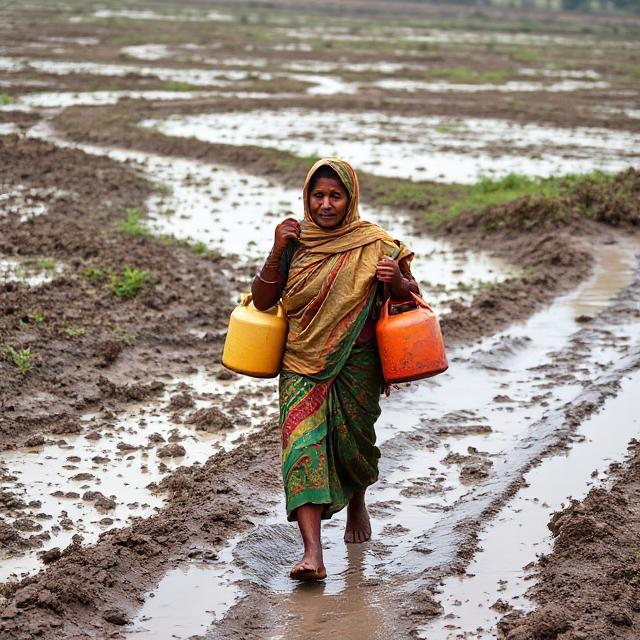
NGO and Donor Interventions
Non-governmental organizations (NGOs) and international donors play a crucial role in filling these gaps. Organizations like BRAC have pioneered large-scale homestead gardening programs and microfinance initiatives that specifically target women. FAO has supported training programs for women farmers in South Asia on sustainable agriculture and improved post-harvest practices.
Research institutions like IFPRI have provided invaluable data and insights through their gender-nutrition programs, informing policy and program design. EcoNature BD, as a thought leader in this space, actively engages in advocacy, drawing attention to critical gaps and promoting best practices for empowering women in food security within sustainable food systems. We believe in collaborative action to amplify impact.
Invest in Her Future: Donate Today to Support EcoNature BD’s Women Empowerment Programs! Your Contribution Can Equip a Woman Farmer with the Tools and Training She Needs to Thrive.
Future Pathways
To truly secure food and nutrition for all, especially in rural Bangladesh, we must commit to several key pathways:
Nutrition-Sensitive Agriculture:
Moving beyond simply increasing yields, agriculture must become inherently nutrition-sensitive. This involves promoting diverse cropping systems, cultivating biofortified crops (like zinc-rich rice), integrating livestock and fisheries, and educating farmers on the nutritional value of what they grow.
Gender-Responsive Extension:
Agricultural extension services must be fundamentally reformed to be gender-responsive. This means training female extension workers, offering separate training sessions for women, and delivering information in formats and at times convenient for women, ensuring they have equitable access to vital agricultural knowledge.
Community Nutrition Education:
Sustained, community-based nutrition education is crucial. This involves not just informing women, but engaging entire households – including men and elders – on the importance of diverse diets, safe food handling, and maternal and child feeding practices. This education must challenge harmful social norms that restrict women’s access to nutritious food.
Strengthening Women’s Collectives:
Supporting and strengthening women’s self-help groups, cooperatives, and farmer organizations empowers women to collectively access resources, share knowledge, market produce, and advocate for their rights.
When Women Eat Last, Everyone Loses
The journey towards women, nutrition, and food security in Bangladesh is a testament to the power of human resilience and the profound impact of gender equality. When women, the primary stewards of food at the household level, are denied their rightful place at the decision-making table, when their access to land, credit, and knowledge is curtailed, it is not just women who suffer. Their families suffer, their communities suffer, and the nation’s progress towards sustainable development falters. When women eat last, everyone loses.
But when we invest in rural women when we provide them with secure land rights, access to education, financial resources, and a voice in decisions that shape their lives we witness a powerful transformation. We see healthier children, thriving families, more resilient food systems, and more vibrant communities. Empowering women is not charity; it is the most strategic investment we can make for a more nutritious, secure, and sustainable future for Bangladesh.
At EcoNature BD, we are committed to being at the forefront of this change. We believe in amplifying the voices of women agripreneurs, supporting the growth of women-led cooperatives, and advocating for policies that truly empower rural women as key drivers of nutrition and food security. Join us in this vital mission.
Forge a Partnership: Are You an NGO, Donor, or Corporate Partner Committed to Gender Equality and Food Security? Let’s Collaborate with us to fund women’s food security initiatives and help us build a more equitable and nutritious future for all!

